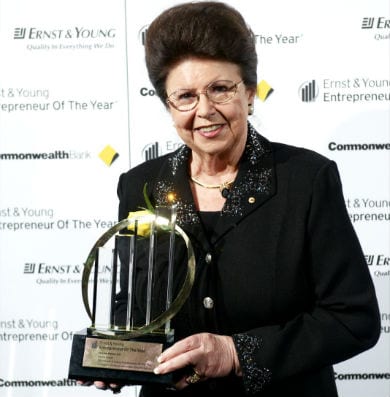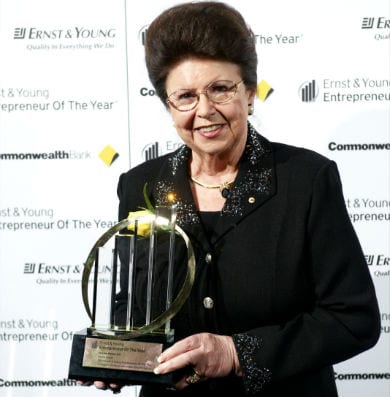Since launching Women’s Agenda, we’ve been lucky to hear from a number of high profile working mothers who’ve managed to raise a family while paving a formidable path in their chosen career.
These women have shared personal stories of the challenges they’ve faced in making the juggling act work, as well as the lessons they’ve learned along the way.
To celebrate Mother’s Day this weekend, we take a look back at some of the words of wisdom from a handful of the women we’ve featured on Women’s Agenda.
Imelda Roche
Entrepreneur Imelda Roche AO is a successful businesswoman who founded Nutrimetics in 1968 when three of her children were under the age of five.
Her most valuable advice she picked up from her grandmother (and the person she credits as being her mentor). Her grandmother taught her that she could do whatever she wanted if she was really dedicated and focused enough: “If it’s to be, it’s up to me. It’s not for somebody else to do it for you. You’re in charge of your own life.”
This mantra was also integral in identifying priorities, and determining which domestic responsibilities really matter and which can be outsourced. Roche also advised that women shouldn’t be afraid to pay for help.
“The priority is not doing the cleaning. Just as long as they know that you’re there for the events that are important.”
Tanya Plibersek
Now deputy leader of the Opposition, Tanya Plibersek’s successfully progressed her political career while raising three young children at the same time.
She recently sat down with Women’s Agenda to share her thoughts on a number of topics, including how she juggles being a working mum while managing a highly demanding political career.
Although she conceded that she’s had some uniquely fortunate circumstances thanks to her capacity to set her own hours and be her “own boss”, she believes her children “undoubtedly” benefit from her career because they see evidence that their parents are passionate about what they do.
Tara Moss
Tara Moss has written and published seven crime novels in 17 countries. She’s ambassador for the Royal Institute for Deaf and Blind Children, a UNICEF Goodwill Ambassador and UNICEF Patron for Breastfeeding for the Baby Friendly Heath Initiative and mother of two.
With that kind of jam-packed schedule, her advice for working mothers is simple: Make no apologies.
“You can’t be two places at once. Once you (or you and your loved ones, if you have a family) decide what needs to be done, make no apologies, whether that means being an artist or a banker, a stay at home parent or a full time career woman. Follow your passion.”
Ann Sherry
When Ann Sherry was inducted into the NAB Women’s Agenda leadership hall of fame, we recognised not only the numerous glass ceilings she’s cracked throughout her impressive career, but her work in paving the way for paid parental leave to become a reality for working mothers in corporate Australia.
The Carnival CEO became a mother to her now adult son at 21 and understands the reality of being a working mother. She has said that becoming a young parent to a son with special needs did not deter her from seeking out a career, but instead pushed her and her husband to find ways to make it work for them. “I wanted to work so I wasn’t going to stay at home. I’m not a stay-at-home kind of mother anyway. So we made it all work around us.”
While forging her impressive career trajectory, she credits much of what she’s achieved with having a solid home base. “I needed a hug by the time I got home and I got it. I then needed to be alone and they left me alone,” she said, regarding a particularly difficult day . “Domestically, it’s so important that I have a solid base.”
Elizabeth Proust
The Nestle chairman and company director has proudly declared that she doesn’t cook.
Sick of hearing the conversation revolve around women’s ability to “have it all”, Proust has instead advised women to forget the debate, quit trying to do it all and learn to ask for help instead … or get your partner to learn how to cook.
She’s also spoken of the importance of having a supportive partner in helping her career success. “If my husband hadn’t helped – more than helped – raise our daughter and do domestic tasks, I would not have been able to do what I have been able to do.”







